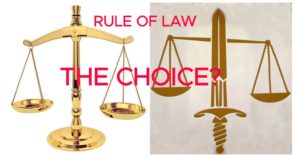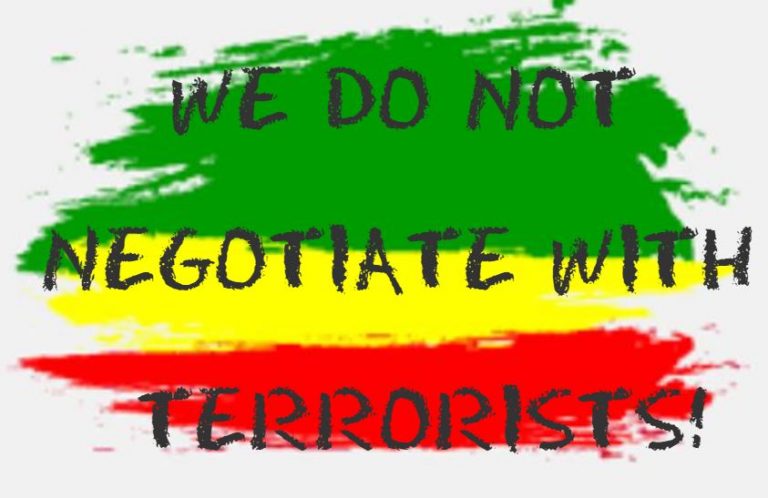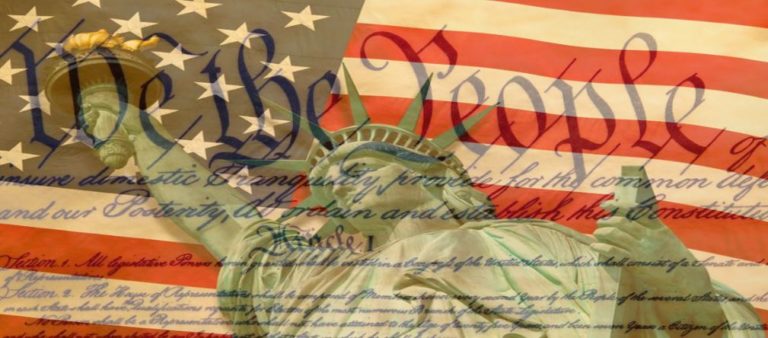Reboot: Is it Time to Make Ethiopia-America Partnership Great Again?
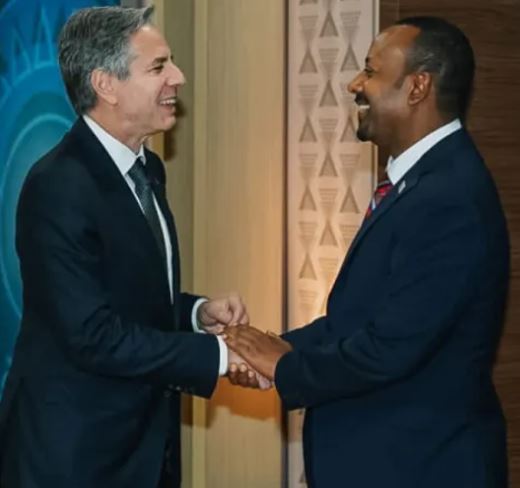
So what we’re looking to do is refashion our engagement with Ethiopia… You know historically we’ve had a strong partnership with Ethiopia… Molly Phee, US Assistant Secretary for African Affairs.
I am a MEGA-MAGA Republican.
That is a Make Ethiopia Great Again-Make America Great Again Republican.
I would very much like to see relations between Ethiopia and the US thaw out, warm up and surge to new heights.
In other words, I would like to see a détente in bilateral relations in which the Biden administration and the Ethiopian government can sit down and respectfully exchange ideas to advance their mutual interests.
I have spent much of my time over the past two years slicing, dicing and mincing US foreign policy in Ethiopia with acerbic polemic.
I was pleasantly surprised by the outward appearances in US-Ethiopia relations during the US-Africa Summit in mid-December 2022.
I had expected rhetorical pyrotechnics from the US with a lot of finger pointing, teeth-gnashing and table pounding.
President Joe Biden and Secretary of State Antony Blinken showed amity and cordiality and treated Prime Minister Abiy Ahmed and his delegation with dignity.
Much to the astonishment of many observers, PM Abiy Ahmed and President Joe Biden appeared in informal settings and exhibited sociability, good will, rapport and manifest comfort in each other’s presence.
Dignity, sovereignty, unity and other related values are big deals to me.
In fact, I railed against the Biden administration for the last two years because I believed the administration treated Ethiopia with great contempt and indignity.
That led me to write my commentary “Clash of Civilizations,” in which I tried to teach the Biden administration “Ethiopia is a civilization, not a country.”
The Good Book teaches, “there is a time to heal; a time to break down, and a time to build up; a time to cast away stones, and a time to gather stones together.”
It is time to heal the wounds of the past two years between Ethiopia and the US. Time to patch up the battered partnership. Time to beat the swords into plowshares and the spears into pruning hooks. Time to cast away the sticks and stones and pick up the chalice of peace and diplomacy.
Over the last three months since the US-Africa Summit, I have noticed what appears to be efforts on the part of the Biden administration to refrain from openly denigrating, vilifying and humiliating Ethiopia for its alleged failures to keep its house in order.
The Biden administration at least in public has shown respect for Ethiopian sovereignty by refraining from from inflammatory rhetoric which smacked of blatant interference in Ethiopia’s internal affairs.
The Biden administration now seems to uphold the anchoring principle of Africa’s foreign relations: “African solutions to African problems.” Indeed, “Ethiopian solutions to Ethiopian problems.”
Blinken’s Ethiopia visit
On March 10, 2023, Assistant Secretary for African Affairs Molly Phee announced Secretary of State Antony Blinken will visit Ethiopia and Niger:
In Ethiopia, the Secretary has been devoted since he assumed office to finding a way to restore peace and stability… So this visit will be part of our ongoing and dynamic engagement with the Ethiopians to help consolidate that peace. So what we’re looking to do is refashion our engagement with Ethiopia… You know historically we’ve had a strong partnership with Ethiopia… We will continue to need steps by Ethiopia to help break the cycle of ethnic political violence that has set the country back for so many decades, including most acutely in this recent conflict.
Normally, I view any statement issued on Ethiopia by the Biden administration in a negative light. I have ample reasons to hypercritically examine the administration’s policy statements and views on Ethiopia.
There are a few things I find encouraging and positive in Phee’s statement.
First, I found encouraging the language expressing desire to energize “dynamic engagement with the Ethiopians to help consolidate peace.” I read that to mean the Biden administration will not dictate or hector Ethiopia on how it should keep its house in order but actively support ongoing efforts and defer to the principle of “Ethiopian solutions to Ethiopian problems.”
Second, the language supportive of “refashioning US engagement with Ethiopia” is promising. I read that to mean going forward bilateral relations will be based on mutual respect for each other’s sovereignty, unity and dignity. A refashioned engagement will have no humiliating sanctions/threat of sanctions or incur economic, diplomatic and psyops warfare against Ethiopia.
Third, it is reassuring the Biden administration wants to restore the “historic strong partnership between Ethiopia and the US.” I read that to mean Ethiopia and America are natural allies with relations dating back to 1903.
(Would it not be wonderful if the two countries could celebrate 120 years of bilateral relations in 2023? Hint, hint.)
There are also things unsaid in the statement I liked.
There are no imperious commands about “humanitarian access” and the rest of it.
There are no threats of sanctions and other unspecified punishments.
There is no blanket condemnation of the Ethiopian government for acts of transgression, commission or omission.
There is also no intimation of Ethiopia possible reinstatement to the AGOA regime.
I have taken a strong stand on AGOA and as matter of national dignity Ethiopia should not beg for reinstatement.
If the US wants to strengthen relations with Ethiopia, reinstatement to AGOA could be regarded viewed as a gesture of goodwill, good faith and renewed partnership.
As far as I am concerned, the AGOA matter should be left unmentioned and entirely to the discretion of the Biden administration.
Is it likely Blinken’s visit will result in “dynamic engagement,” “refashioned relations” and restoration of the “historic strong partnership” between the US and Ethiopia?
“Hope springs eternal in the human breast;/ Man never Is, but always To be blest,” wrote Alexander Pope.
Following the December 2022 US Africa Summit, I expressed cautious optimism for the possibility of a significantly improved Ethiopia-US relations.
I also expressed reservations that the wounds inflicted on Ethiopia by the Biden administration over the past two years are too deep and harrowing to heal in a short time.
Former US Secretary of State Henry Kissinger is reputed, inaccurately, to have said, “America has no permanent friends or enemies, only interests.”
I believe Ethiopia and the US have overlapping national interests which compel them to work together in strong partnership.
US policy in Ethiopia is focused on four broad goals:
(1) protecting American citizens,
(2) strengthening democratic institutions and expanding human rights,
(3) spurring broad-based economic growth and promoting development, and
(4) advancing regional peace and security.
I. The Ethiopian government is wholly committed to the protection of American citizens in its jurisdiction.
Indeed, Ethiopian Airlines, designated “Africa’s Best” in 2022 by Global Traveller Magazine, transports hundreds of thousands of Ethiopians and Americans of Ethiopian ancestry in and out of Ethiopia every year.
Ethiopians living abroad sent 4.2 billion US dollars in remittance in 2022, the vast majority of whom live in the US. The Ethiopian government has even established an Ethiopian Diaspora Agency which serves a great number of disaspora Ethiopians in the US.
When the US State Department issued frantic calls for US citizens to leave Ethiopia in the winter of 2022, Ethiopian Americans returned to their ancestral home by the hundreds of thousands
II. The Ethiopian government is wholly committed to strengthening democratic institutions and expanding human rights.
In June 2021, Ethiopia had the first free and fair election certified by the African Union in its millennia-long history.
Both countries face challenges to their system of democracy.
America faced its greatest threat on January 6, 2021 when a mob stormed the United States Capitol Building in Washington, D.C. in a demented attempt to prevent a joint session of Congress from counting the electoral college votes to formalize the victory of President-elect Joe Biden.
Ethiopia’s budding democracy faced its greatest threat when the terrorist TPLF waged a 2-year war causing the deaths of over a million people.
Ethiopia has prepared a roadmap for transitional justice to look into human rights violations during the 2-year TPLF terrorist war.
Ethiopia has charged 640 persons suspected of corruption at one time, arguably the first instance of such prosecutorial action in world history.
III. Spurring broad-based economic growth and promoting development.
Ethiopia has taken extraordinary measures to facilitate foreign direct investment.
In its 2021 the US State Department in its Business Climate Statement reported:
Ethiopia’s Investment Proclamation allows all registered foreign investors, whether or not they receive incentives, to remit profits and dividends, principal and interest on foreign loans, and fees related to technology transfer.
The United States has had a long-standing partnership with Ethiopia with long-term investments in Ethiopia amounting to more than $13 billion in total assistance.
But there are problems.
In July 2015, President Barack Obama distilled the problem of American investment in Ethiopia.
As you know, the U.S. is Ethiopia’s strategic partner in many fields. And the steady flow of quality investment from the United States, as much as we crave it, though the recent beginning is so encouraging, has often been in short supply. We have discussed, among other things, how to encourage U.S. investors to come to Ethiopia in large numbers, where there are numerous competitive and comparative advantages they can benefit from.
Ethiopia needs much more US investments and much less aid.
IV. Advancing regional peace and security.
Ethiopia and the US have worked in tandem to eradicate the scourge of terrorism from the Horn of Africa.
In July 2015, during his state visit, President Obama called Ethiopia an “outstanding partner” in the fight against terrorism in the Horn and a “key partner” in resolving the crises in South Sudan. He praised Ethiopia for being “a major contributor to U.N. peacekeeping efforts”, and for its unique role in “contributing more peacekeeping troops than any other country in Africa.”
The Horn of Africa continues to experience security threats in all forms – terrorism, wars, militancy, humanitarian catastrophes, drought and hunger.
A stable and prosperous Ethiopia is a solid anchor for the Horn region. What happens in Ethiopia, with the second largest population in Africa, affects not only the region but also the whole continent.
Advancing peace and security in the Horn region begins with advancing peace and security in Ethiopia. A peaceful, secure and prosperous Ethiopia is a peaceful, secure and prosperous Horn of Africa.
Turning to look at the GERD (Grand Ethiopian Renaissance Dam) elephant in the living/ boardroom
My principal concern with Secretary Blinken’s Ethiopia visit is whether he 1) will be talking about the Grand Ethiopian Renaissance Dam (GERD), 2) if so, squeeze Ethiopia to submit to Egypt’s demand which will effectively preventing Ethiopia from using its Nile waters consistent with international law and 3) demand a role in the GERD talks being managed by the African Union.
Recently, the Arab League passed a resolution sponsored by Egypt on the GERD which was swiftly rejected by the Ethiopian government.
In my commentary following the US-Africa Summit, I confessed my gnawing concern Secretary Blinken might lean on Ethiopia on GERD disputes.
In 2020, the Trump administration outrageously tried to dictate terms of a GERD agreement to Ethiopia to no avail.
Trump then egged the Egyptians to bomb the GERD if Ethiopia refused to sign the “agreement.”
And they’ll end up blowing up the dam. And I said it — and I say it loud and clear, “They’ll blow up that dam.” And they have to do something. So whatever you can do to get them, Ethiopia, to do that, they’re going to have to. Okay? And we’ve cut off all payment and everything else to Ethiopia. (Boldface added.)
In his February 29, 2020 blog, former US Ambassador to Ethiopia David Shinn expressed surprise over the so-called GERD agreement “facilitated” by former Secretary Steven Mnuchin and The World Bank’s president David Malpass:
The fact that the U.S. Treasury Department is in charge of this effort is surprising. In any other administration, the State Department, which actually has expertise on this issue, would broker the agreement. So, I wonder. What are the United States up to?
Ambassador Shinn then hit the nail on the head:
The United States seems to be putting its thumb on the scale in favor of Egypt. Perhaps it is time to make the agreement public so that everyone can see what the United States is proposing.
I cannot imagine a scenario in which the Biden administration would seek to humiliate Ethiopia over the GERD as did the Trump administration. That is a nonstarter!
The Biden administration can play a constructive and positive role in the GERD dispute: Let Africans deal with it. Let Africans solve it. Let Africans figure it out. They are adults. They don’t need the supervision of other adults to get their houses in order.
Let them figure it out using their “African solutions to African problems” doctrine.
The principle of “African solutions to African problems is quintessentially and existentially a statement of dignity in sovereignty.
On October 16, 2020, soon-to-be elected president Joe Biden on his Facebook page wrote:
My dad always told me: ‘Joey, a job is about a lot more than a paycheck. It’s about your dignity. It’s about respect. It’s about your place in your community. It’s about being able to look your kids in the eye and say, honey, it’s going to be okay.’
I feel the same way today as President Biden felt in 2020 about the GERD.
I say to President Biden: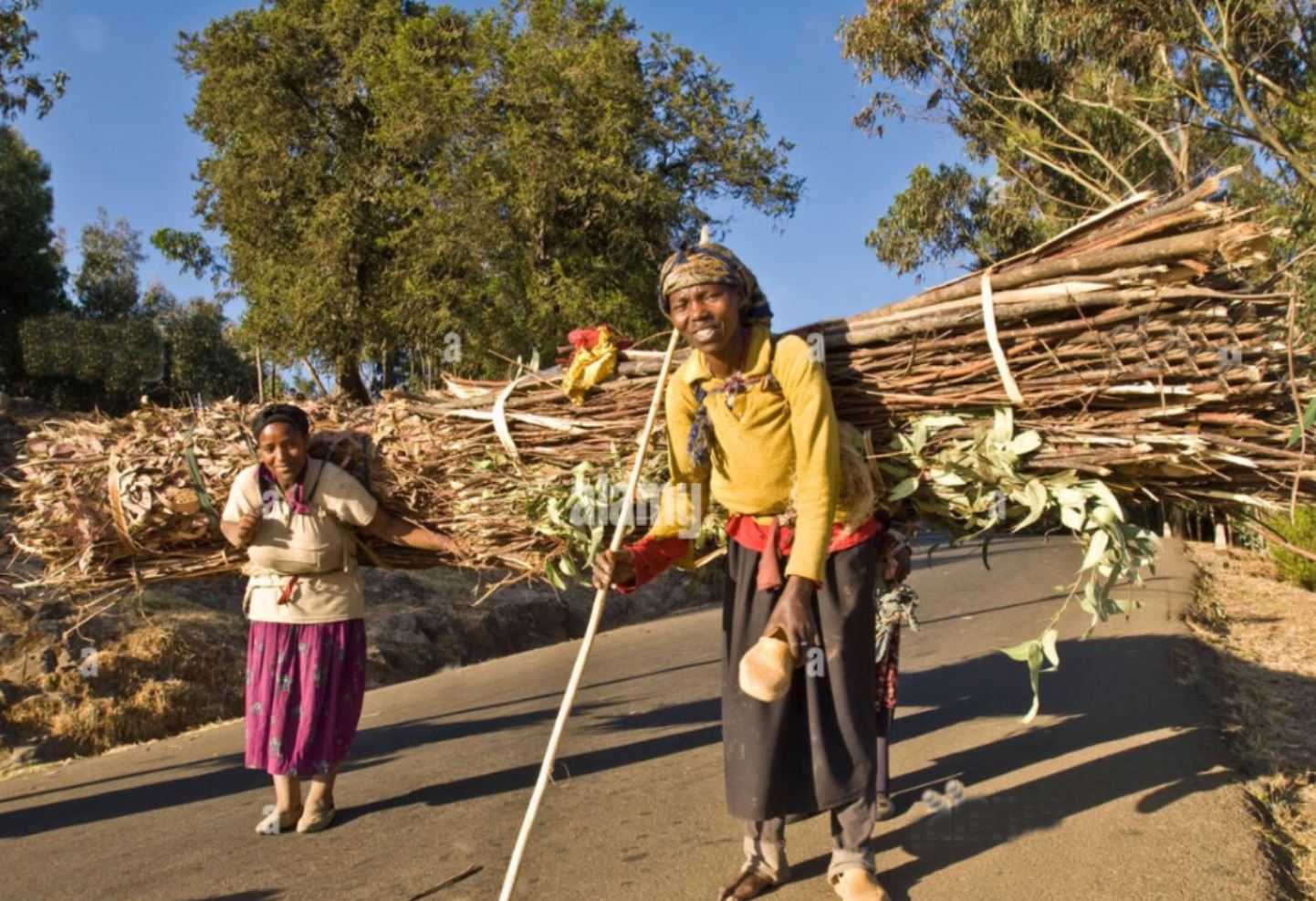
Joey, the GERD to Ethiopians is about a lot more than an electric power generation plant. It’s about OUR Ethiopian dignity. It is about a monument to Ethiopian development paid in the blood, sweat and tears of all Ethiopians, poor and rich alike. It’s about respect. It’s about OUR place in the community of nations, the world, the cosmos, the universe. It’s about being able to look into the eyes of our mothers whose eyes have been blinded by wood smoke and their backs broken by carrying firewood.
It is about looking them into the eyes of each one of the millions of mothers throughout the land and saying, “Honey, it is going to be okay because, thank God Almighty, the GERD will make you free, free from carrying firewood on your back, free from from going blind from wood smoke, free to prosper and live out your dreams in dignity and pride because you were able able to build the largest and most modern hydroelectric dam in all of Africa!
[Post Script: My private conversation with “Little Doubting Thomas” hiding in me]
When I heard of Secretary Blinken’s trip to Ethiopia and Niger, I prepared two full commentaries.
One commentary was inspired by my very good and longtime best friend “Little Doubting Thomas (LDT),” who always hides in the back of my mind telling me stuff.
LDT recommended I publish my usual acerbic commentary that leaves no stones unturned, defiant, implacable, relentless and unsparing.
That commentary will never see the light of day unless I have been proven to be a doggone old fool after Secretary Blinken’s visit!
The second commentary is this one I chose to publish here.
It was not easy to choose.
I had a hard conversation with Mr. LDT.
LDT said to me, “Don’t trust’em. It is a ruse. A game. It is a staged drama. Don’t be a chump. Go hard on ’em, all the way. No compromises!”
I said to LDT, “How about I trust’em first and verify later.”
LDT replied, “Sure, trust’em. Trust them as far as you can throw them! Then verify.”
At that point, I threw Little Doubting Thomas himself into the wind. Just like one would throw caution to the wind.
I said, “Begone LDT! I will take my chances. If it is a staged drama as you say, I would be the fool.”
As LDT drifted away in the wind, I could hear him say, “You got that right! There is no fool like an old fool.”
I do not know how Blinken’s visit will turn out.
I am hopeful it will mark the beginning of a new chapter in Ethiopia-US relations.
But I have to admit, the words of that doggone Doubtful Thomas keeps ringing in my ear, “They never miss an opportunity to miss an opportunity.”
Hilary Clinton facing unexpected defeat delivered a magnificently eloquent concession speech to Barack Obama, which expresses my feelings as I look forward for improved Ethiopia-US relations:
So I want to say to my supporters: When you hear people saying or think to yourself, ‘If only, or, ‘What if,’ I say, please, don’t go there. Every moment wasted looking back keeps us from moving forward. Life is too short, time is too precious, and the stakes are too high to dwell on what might have been. We have to work together for what still can be. And that is why I will work my heart out to make sure that Senator Obama is our next President. And I hope and pray that all of you will join me in that effort.
I believe the stakes are too high for Ethiopia and the US to dwell on what mighta, coulda or shoulda been.
I wish success to Secretary Blinken on his first visit to Ethiopia. I wish success to Ethiopia’s leadership.
I am fully confident all Ethiopians will be happy to have Secretary Blinken in the Land of Origins — the Cradle of Humanity — and show him the legendary Ethiopian hospitality.
As a MEGA-MAGA Ethiopian American, it is my moral duty to make relations between Ethiopia and America Great Again.
To that end, I too will work my heart out and hope and pray all Ethiopian Americans will join me in that effort.
If I have been wrong and that little old bas**rd Doubting Thomas right, I would have proven at least one thing: “There is really no fool like an old fool.”



